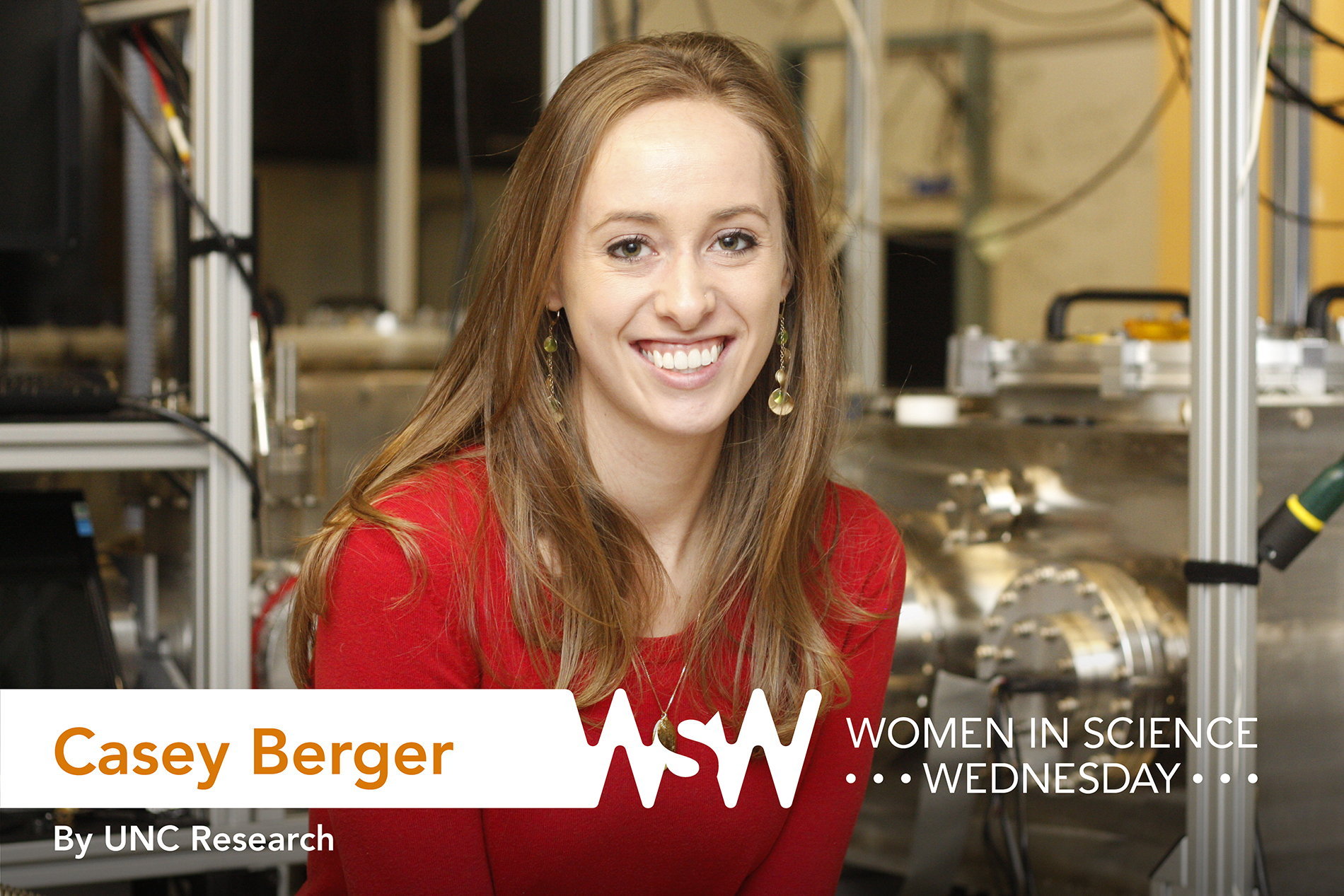When you were a child, what was your response to this question: “What do you want to be when you grow up?”
Describe your research in five words.
“Using computers to understand atoms.”
Writer, architect, lawyer, actress.
Share the pivotal moment in your life that helped you choose research as a career path.
I loved science, math, and logic puzzles, but the idea of “scientist” or “mathematician” never felt like a real career choice to me. It wasn’t until I had graduated from college with degrees in film and philosophy, and was working in talent management in Los Angeles that I realized I needed science and the pursuit of knowledge to be a daily part of my life. Although neither of my parents are scientists, they both taught me that sometimes the best questions are the ones where the answer is unknown, and that the proper way to approach those questions is to ask more questions. So I went back to school to study physics.
What’s an interesting/funny story from your time doing research?
I’m not very good about tweeting — it’s a thing I’m really working on. At the American Physical Society’s March Meeting, a massive conference with thousands of attendees, I presented the results from my undergraduate thesis work. Imagine my surprise when I got a Twitter notification — another graduate student doing similar work had seen the talk and tweeted about it. And somehow she found me and tagged me in the tweet, despite my almost complete lack of social media presence. We got together at a networking event at the conference, and we have kept in touch ever since.
What advice would you give to up-and-coming female researchers in your field?
I can’t stress enough how important it is to reach out to other women in STEM. Don’t wait for a mentor to come to you — find those you can go to for advice about your work, about the struggles you will face as a woman in this field, and about personal choices and work-life balance.


